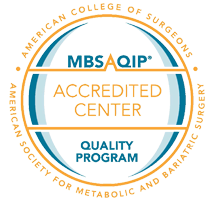 Following weight loss surgery, you won’t be able to eat as much food in a single sitting as you might have prior to your operation. But this doesn’t change the amount of nutrients your body needs daily. This means that you’ll have to find ways to maximize nutrient intake in your diet without overeating.
Following weight loss surgery, you won’t be able to eat as much food in a single sitting as you might have prior to your operation. But this doesn’t change the amount of nutrients your body needs daily. This means that you’ll have to find ways to maximize nutrient intake in your diet without overeating.
As you start learning more about your personal health and nutrition, you’ll often hear the term “essential nutrients.” Essential nutrients are nutrients that the body requires to thrive, but cannot produce on its own.
There are six categories of essential nutrients, they are:
- Water
- Protein
- Carbohydrates
- Fats
- Vitamins
- Minerals
Your body relies on your diet to supply it with these nutrients. When you eat foods that lack nutritional value, or when you do not consume enough food, you can face a nutritional deficiency. This is a condition in which your body will systematically start shutting down to preserve the nutrients that are left. Dehydration is an example of a nutritional deficiency.
Finding Foods for a Healthy Diet
For most people, a lack of food isn’t a big concern in the United States Food is available in abundance just about everywhere you turn. The problem is that much of the food we eat lacks nutritional value. This means that it is possible to eat a full meal and to even max out on your suggested calorie intake for a day and to remain starved of the essential nutrients your body needs.
Instead of eating any food that can cause you to feel “full,” focus on eating nutrient rich whole foods that will help you to feel energized and healthy.
This will often include items like:
- Fruits
- Vegetables
- Lean meats
- Whole grains
Weight loss surgery is a chance to take a step back from the hustle and bustle of your life and focus on the food and activity choices you make. By learning more about the foods you choose to eat and learning to make healthier choices, you can improve your health and develop habits that will encourage weight management long-term.


